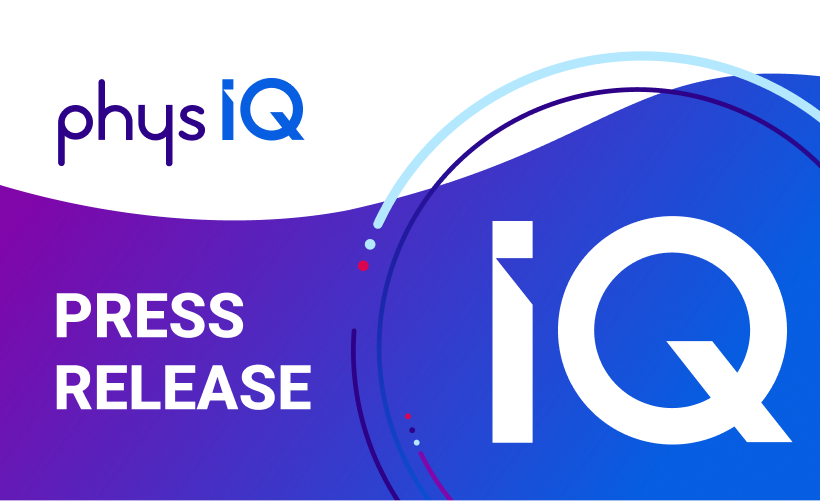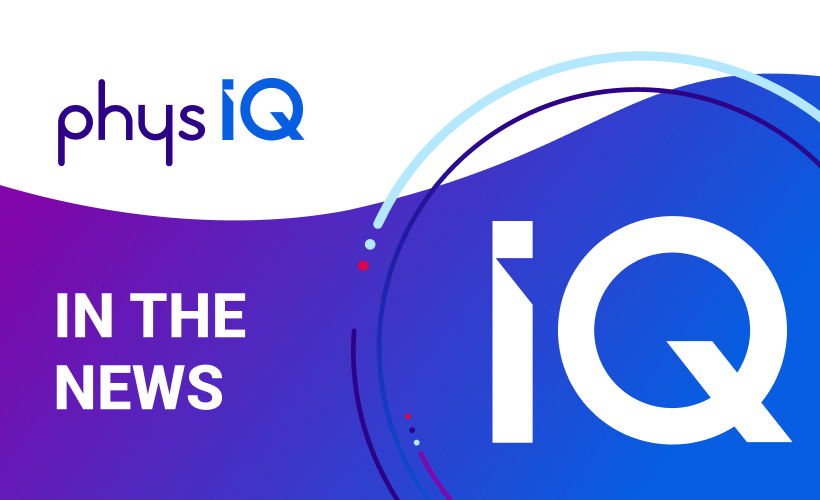Inside an Individual’s Physiological Signature
Originally published in Medical Device & Technology
2 min read
![]() physIQ
:
August 4, 2015
physIQ
:
August 4, 2015

CHICAGO, IL – August 4, 2015 – physIQ, a leader in developing solutions based on machine learning technology to revolutionize remote patient monitoring, has received U.S. Food and Drug Administration (FDA) 510(k) clearance for its Personalized Physiology Analytics (PPA) Engine Software. Categorized as a Class II device for patient monitoring, the physIQ PPA software is the first FDA-cleared device to receive the new product code PLB: Automated calculation of a summary index based on several individual measured vital sign inputs.
“Achieving FDA 510(k) clearance for our core analytics is a groundbreaking development toward realizing our vision for transforming health care,” said Matt Pipke, Chief Technology Officer of physIQ. “The future of medicine is in the cloud. Real-time visibility into patient condition anywhere and anytime is not a far off dream, but imminent. The key is robust analytics that can distill massive amounts of patient data from wearable and implantable sensors into actionable information for clinicians. Our goal at physIQ is to revolutionize personalized digital medicine by empowering physicians to intervene early and effectively to proactively manage disease and improve patient quality of life.”
physIQ brings proven expertise and technology to the challenges of monitoring changes in the human body. Company founders previously developed and commercialized the technology for monitoring complex, mission-critical commercial jet engines and other machine applications, at a prior company that was ultimately acquired by GE Intelligent Platforms.
Recent advances in wearable vital sign sensors are game changing, according to Pipke. Instead of once-per-day manual measurements reported by patients, multivariate vital signs can now be continuously captured and uploaded via mobile device for analysis. The PPA software can accept and integrate data input from a range of commercial monitors providing continuous vital signs such as heart rate, respiration rate, and body motion.
There are however unique challenges to monitoring ambulatory patients outside of a hospital setting. Vital signs exhibit huge variation with normal activities of daily living, making it difficult to identify signs of potential health problems. Moreover, each patient has a different baseline, such that vital sign patterns for similar activities can vary significantly with age, gender, weight, and health condition. The physIQ platform constructs a personalized baseline norm for each person monitored, rather than simple trending or comparison to population-based statistics. In this way, the platform is intended to accommodate vital sign dynamics caused by normal human activities, while detecting changes above and beyond baseline variation and interpersonal differences.
According to Dr. Susan Alpert, regulatory advisor to physIQ and former Director of the Office of Device Evaluation (ODE) at FDA’s Center for Devices and Radiological Health (CDRH), “The FDA 510(k) process represents a high bar for digital health innovators looking to go beyond the simple digital transmission of physiological data to generating real insight. This first clearance from the FDA for the algorithm that forms the basis for this technology is a critical step in the roadmap to demonstrating that the physIQ product will be a pivotal tool for monitoring patients with a variety of chronic diseases.” physIQ is planning to evaluate the PPA platform in several clinical studies of patients with heart failure, chronic obstructive pulmonary disease (COPD), and infectious diseases.
“There are several fundamental changes occurring in healthcare,” said Gary Conkright, CEO of physIQ. “Among these are the migration to alternative payment models, need for population management, and the rapid proliferation of patient data. Technology will play a major role in enabling these changes and we are proud to be a leader in developing scalable, innovative solutions that not only support proactive care delivery models, but also meet the high standards of the FDA 510(k) process.”
“This is the foundational clearance by FDA in a series of progressive clearances we will seek per our regulatory strategy as we evolve our platform to take advantage of the unique information provided by our analytics. Engagement with FDA from the outset has been profoundly beneficial to our scientific discipline and product quality, and we look forward to continuing to work with FDA as we bring the physIQ platform to market.”

Originally published in Medical Device & Technology

Originally published in Pixel Scientia Labs

Originally published in Crain's Chicago